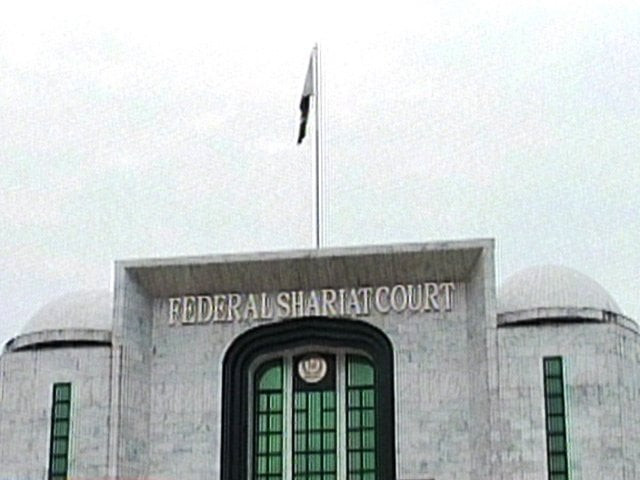Three names approved for Federal Shariat Court judges
JCP will send its proposals to a parliamentary committee for final approval of the appointments.

A meeting of the JCP, headed by Chief Justice of Pakistan Tassaduq Hussain Jillani, regarding the appointment of three new FSC judges was held on Thursday .
The Express Tribune has learnt that the commission approved the recommendations for the appointment of former Islamabad High Court judge Justice (retired) Riaz Ahmad Khan, former Lahore High Court judge Justice (retired) Sheikh Najmul Hassan and Balochistan High Court Bar Association president Zahoor Ahmad Shahwani for Federal Shariat Court. The sources also said the commission has further proposed the job extension of Justice Dr Fida Muhammad Khan as FSC’s judge as his tenure ends on July 5.
FSC Chief Justice Sardar Muhammad Raza Khan had recommended all three appointments as well as job extension of Justice Dr Fida Muhammad Khan. The JCP will forward its proposals to a parliamentary committee for final approval of the appointments.
According to Article 203 C of the Constitution, the FSC shall consist of no more than eight Muslim judges, including the chief justice and Ulema judges who are well versed in Islamic Law.
Currently, four judges are appointed in the FSC -- Justice Rizwan Ali Dodani, who retires on July 5, Justice Ashraf Jahan, who is also the wife of a Supreme Court Judge, Justice Anwar Zaheer Jamali, Justice Dr Fida Muhammad Khan and the chief justice himself.
The FSC was established during the tenure of former military ruler Ziaul Haq in 1980. In the past year, more than 1,000 cases were pending in the Shariat Court.
Top jurist of the country, Tariq Mahmood, while talking to The Express Tribune has urged the FSC to dispose of all criminal cases as soon as possible as people are facing hardships due to the pendency of their appeals.
He also mentioned the ‘Riba’ (usury) case that was remanded back to the Shariat Court by the Supreme Court in 2002 to reconsider its judgment delivered in 1992, which declared interest or Riba repugnant to the injunctions of Islam.
The senior lawyer has urged that the 22-year-old matter be decided immediately because several people have raised questions over the pendency of this matter in the FSC.
The Federal Shariat Court has jurisdiction to decide matters in its original, revisional, appellate and review jurisdictions and to decide a reference made to it.
Article 203-D of the Constitution empowers the FSC to examine and decide whether or not any law or provision of law is repugnant to the injunctions of Islam. The court, during the past years has examined 512 federal laws and 999 provincial laws Suo Moto on the touch stone of injunctions of Islam and have found 55 federal laws and 212 provincial laws as repugnant to those injunctions.
The court exercises appellate jurisdiction in Hudood cases registered under Hudood Laws. The Offences against Property (Enforcement of Hudood) Ordinance, 1979, the Offence of Zina (Enforcement of Hudood) Ordinance 1979, the Offence of Qazaf (Enforcement of Hadd) Ordinance, 1979, the Prohibition (Enforcement of Hadd) Order, 1979.
Clause (9) of Article 203 E of the Constitution empowers the court to review any decision given or order made by it.



















COMMENTS
Comments are moderated and generally will be posted if they are on-topic and not abusive.
For more information, please see our Comments FAQ